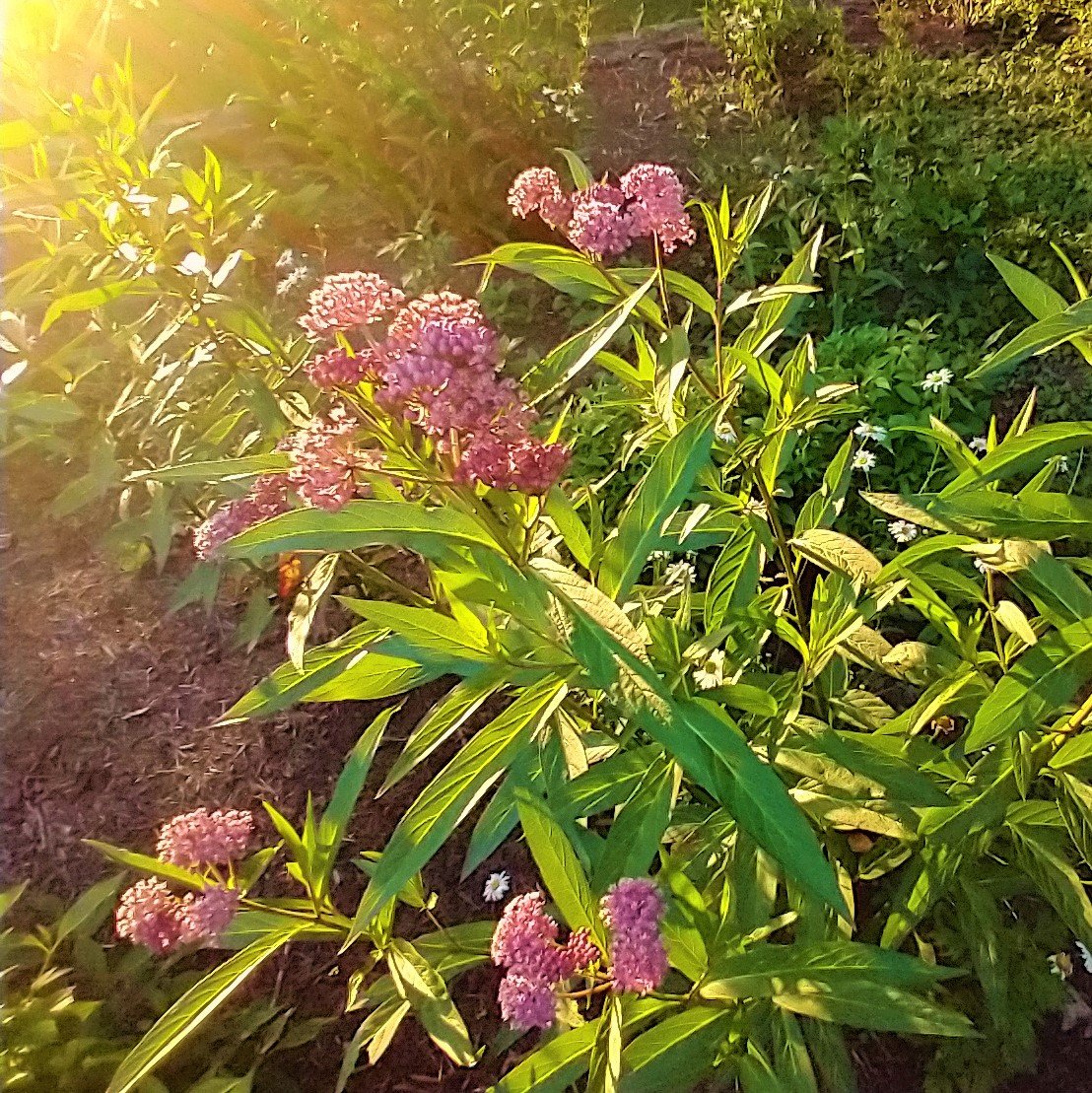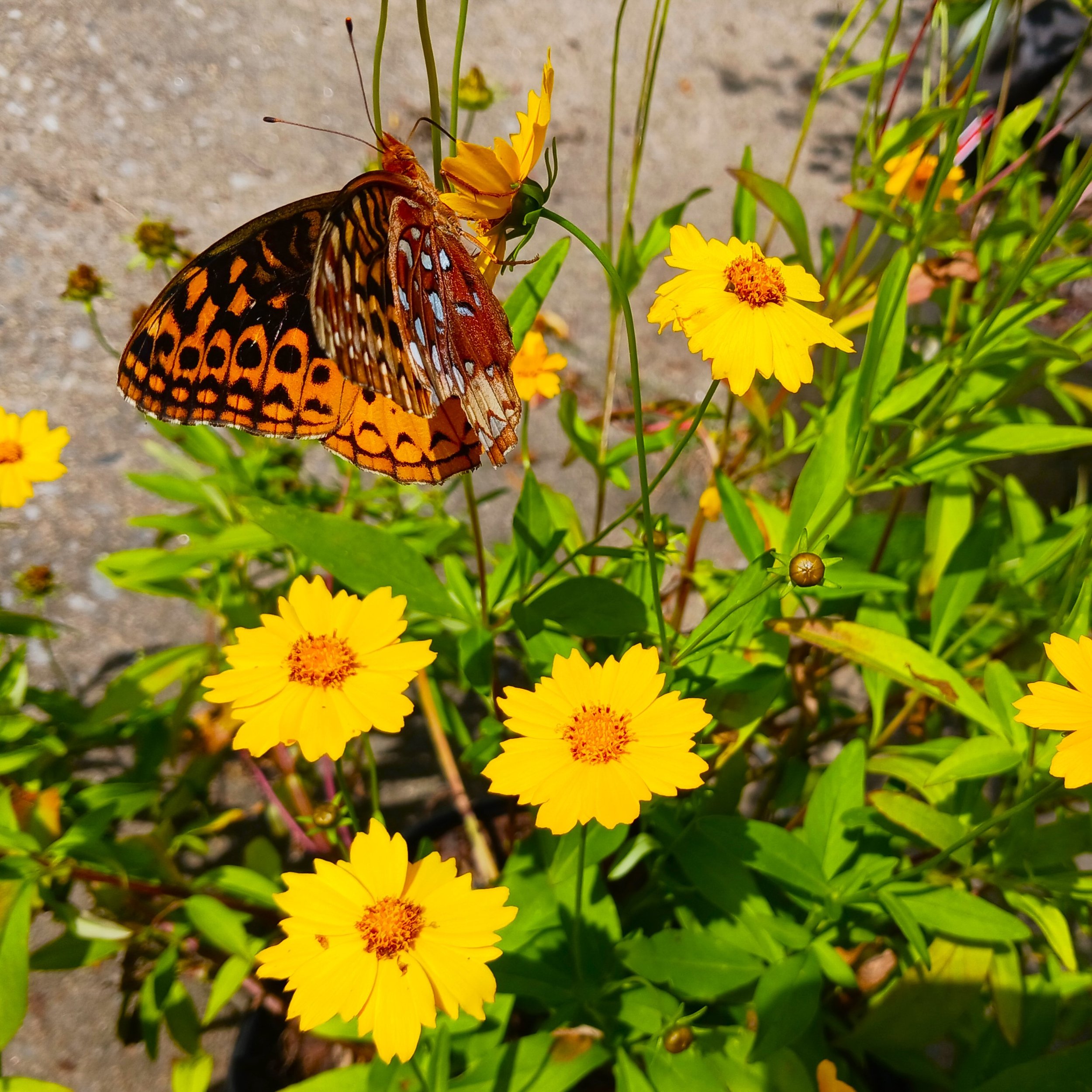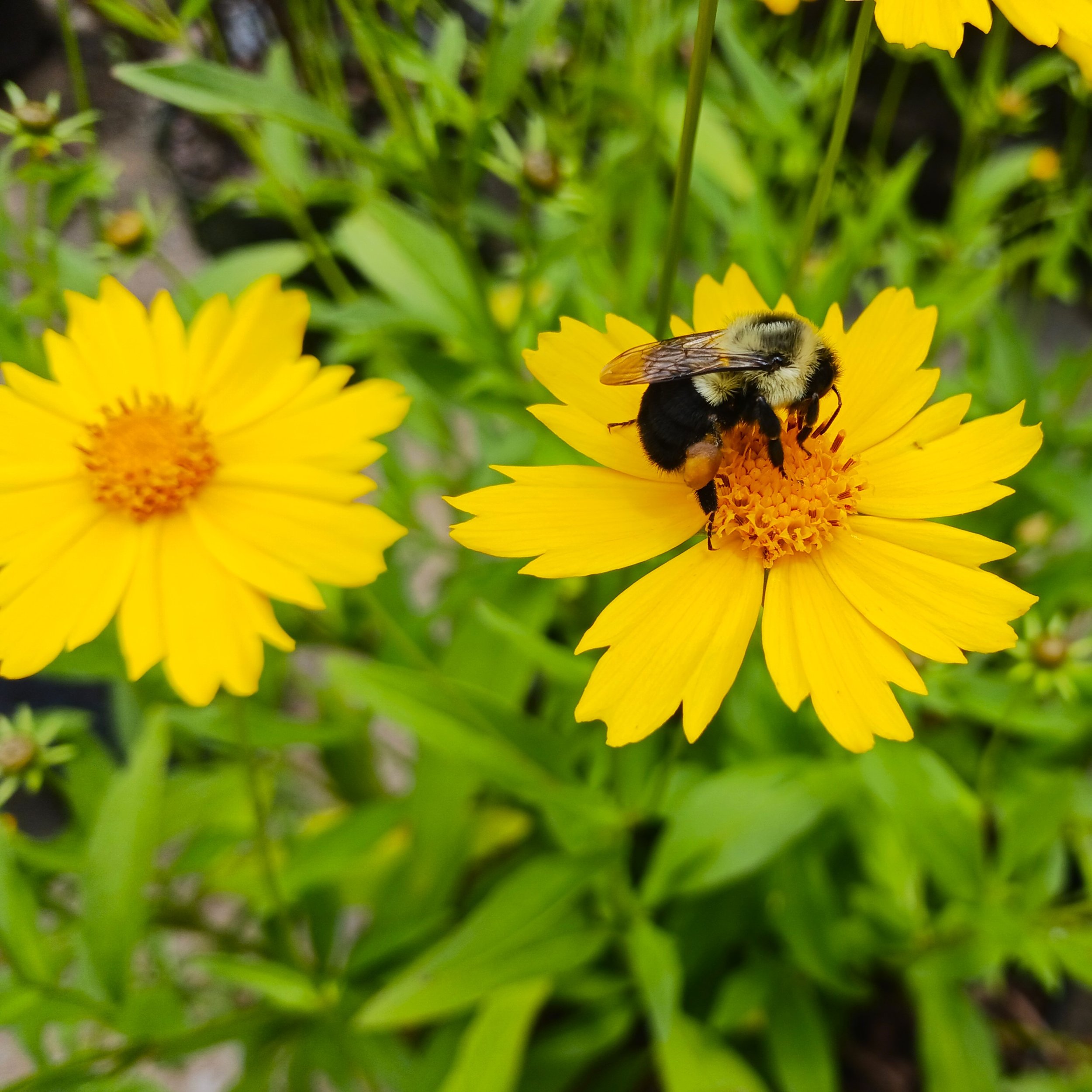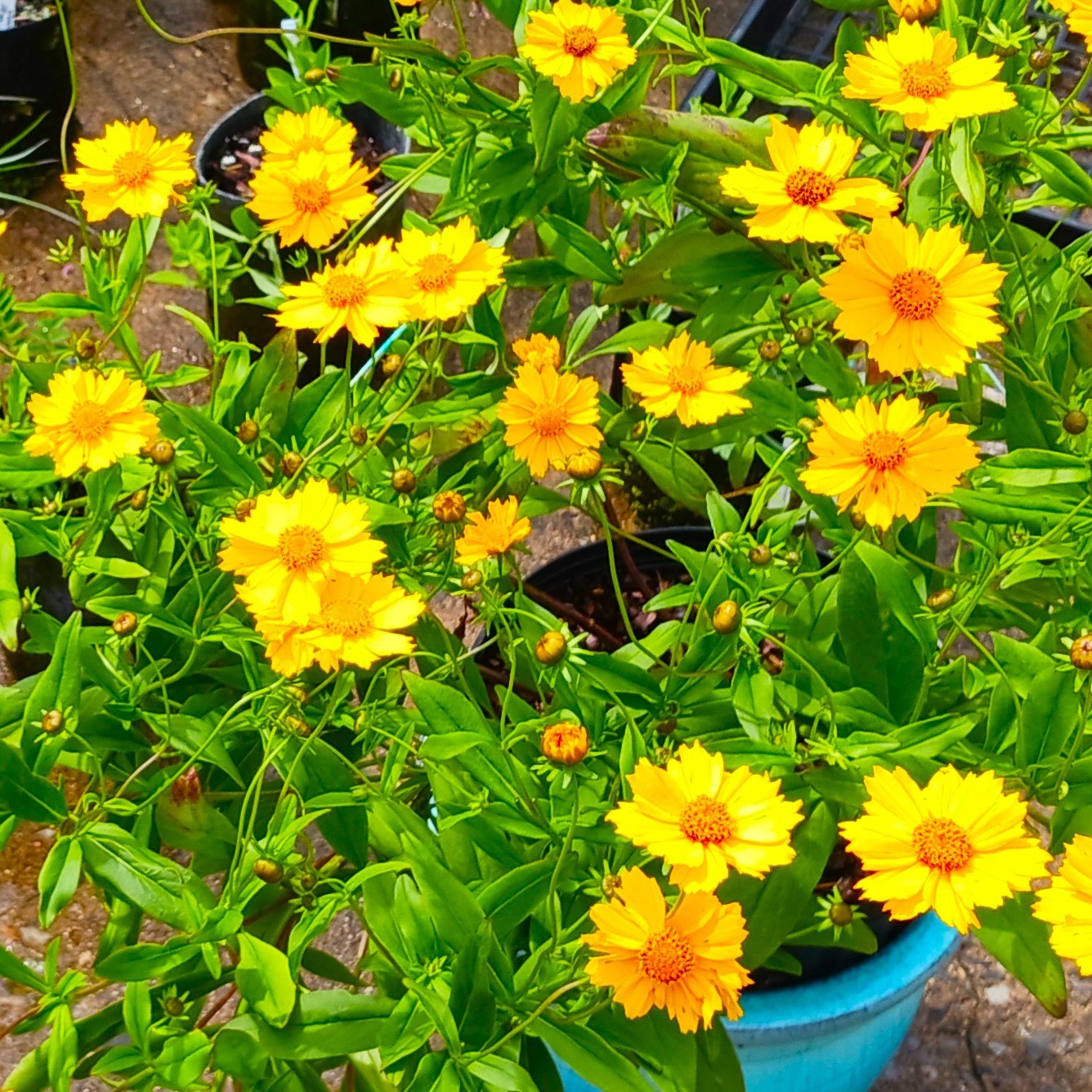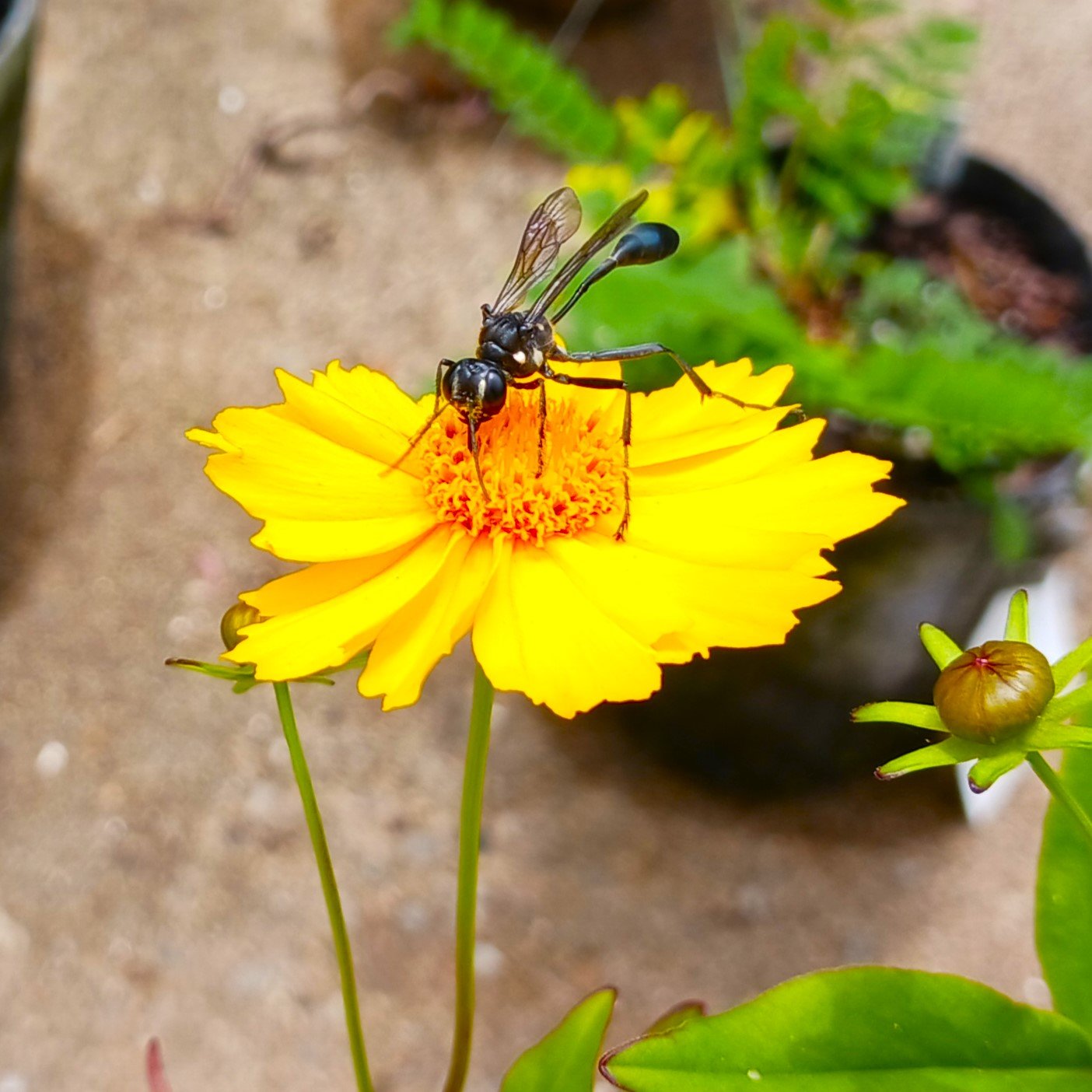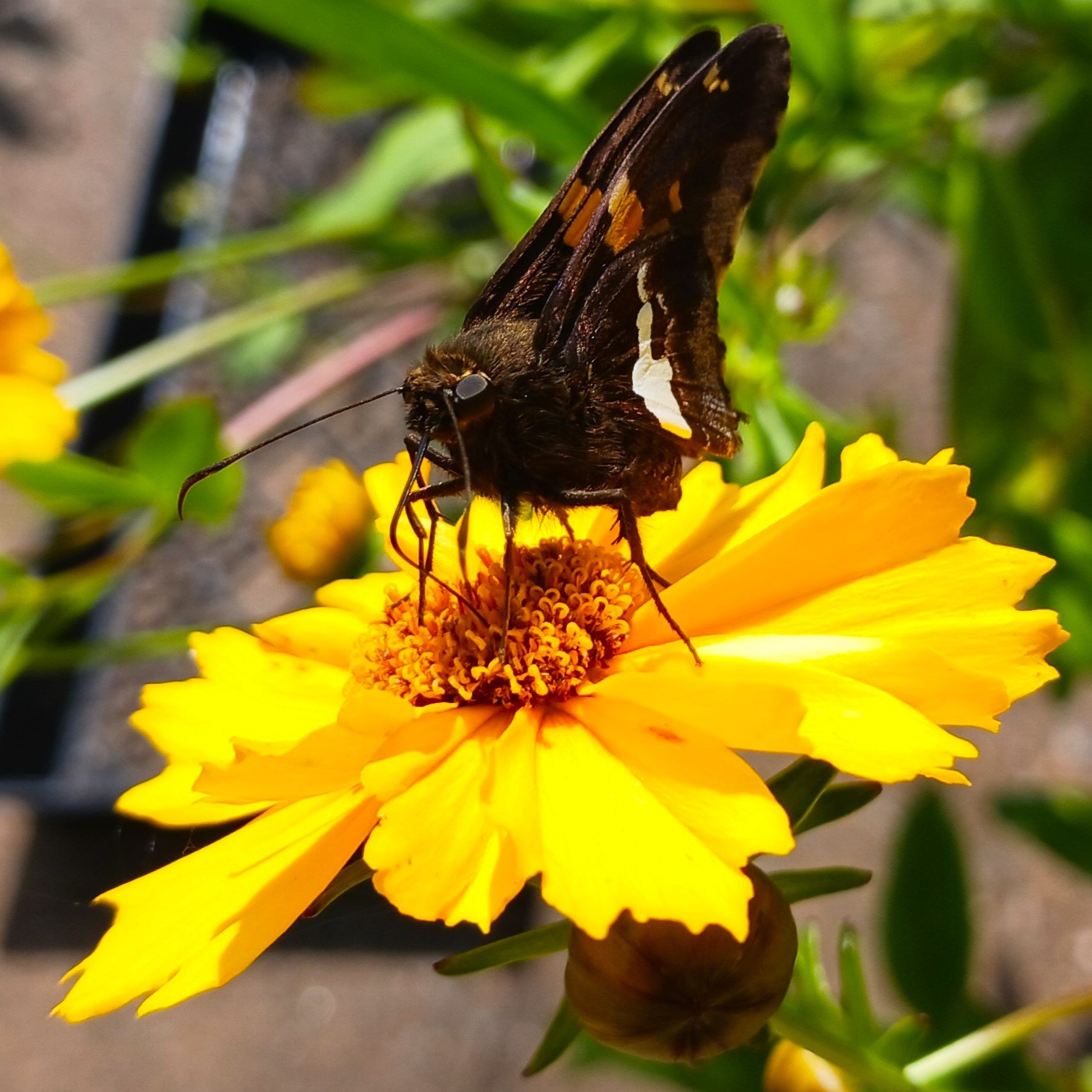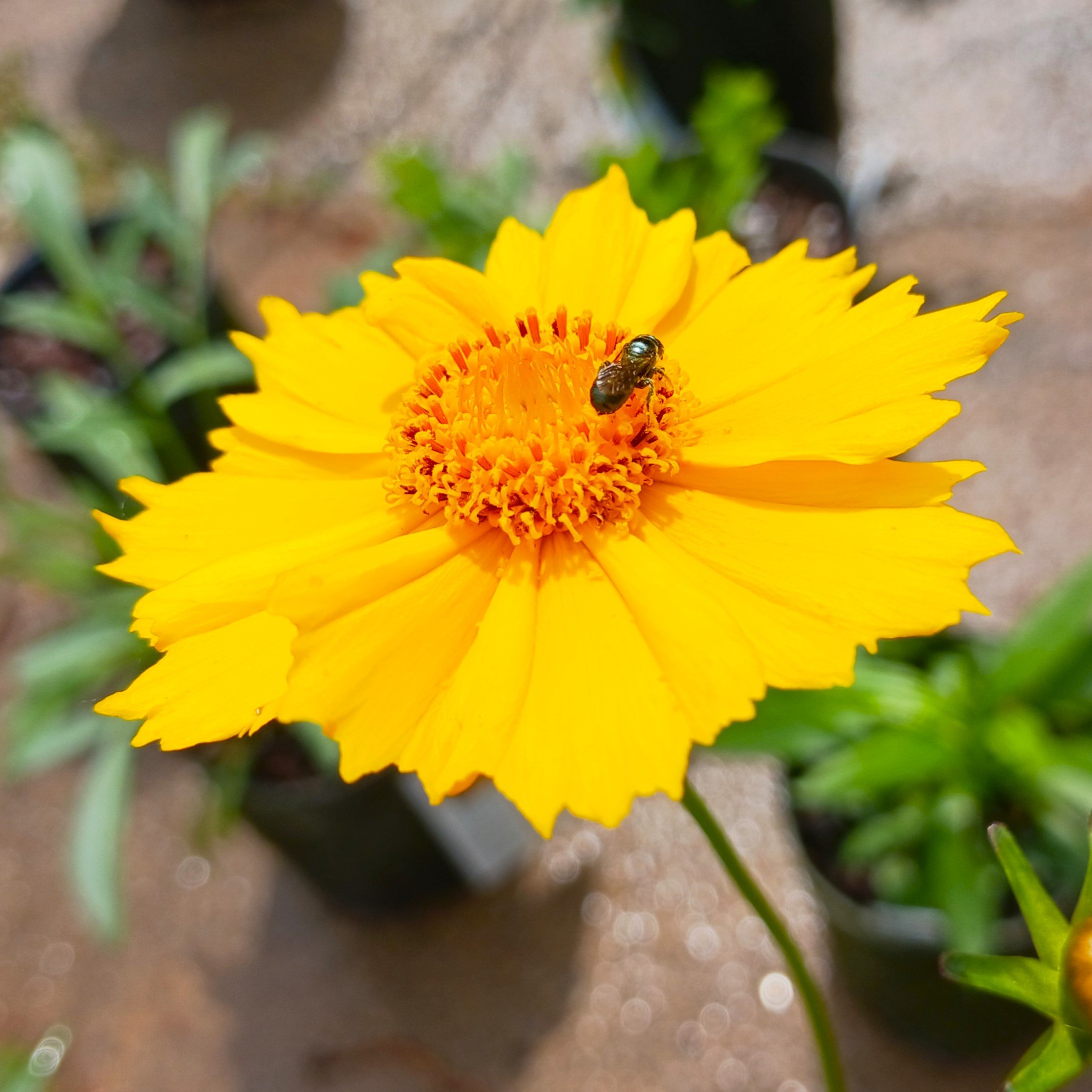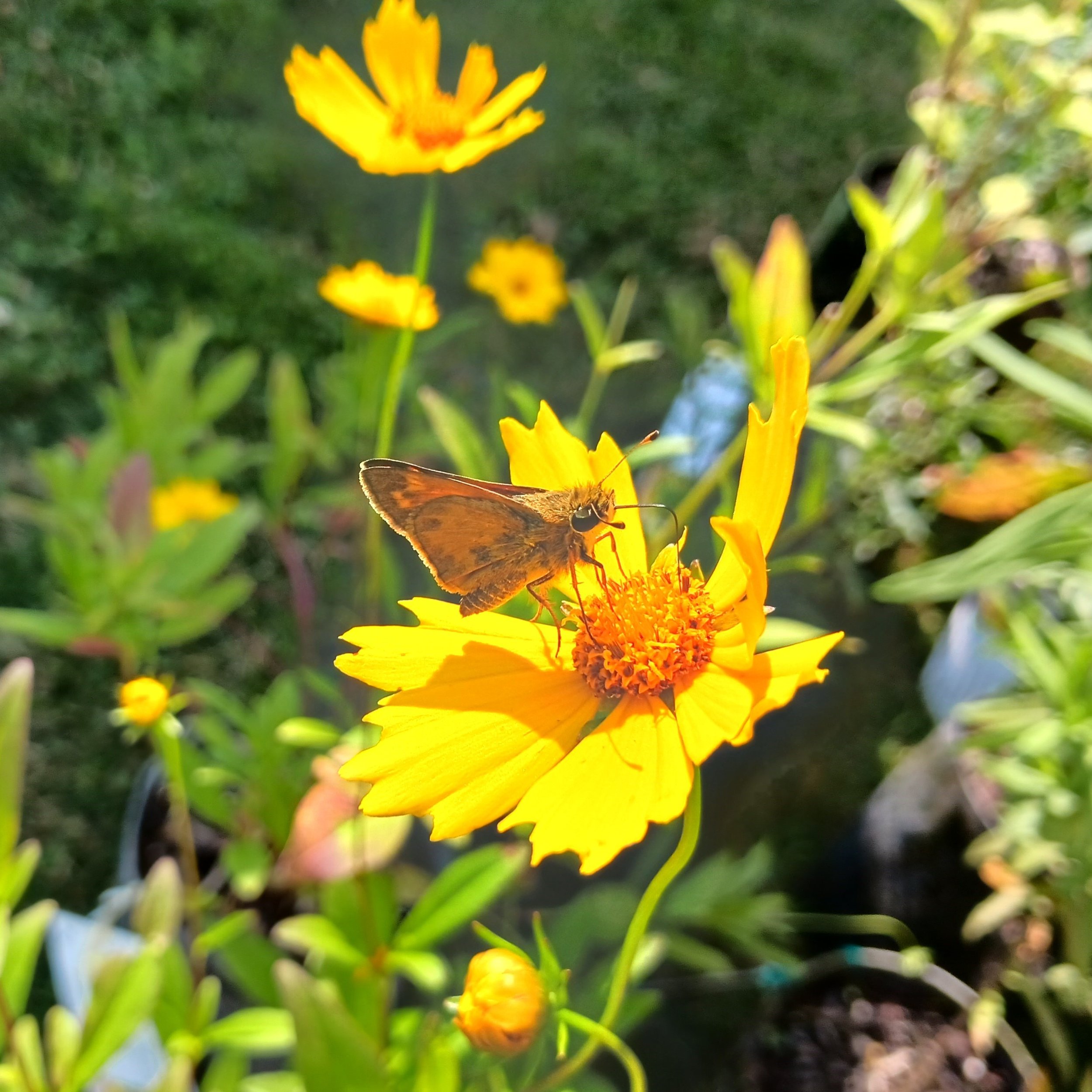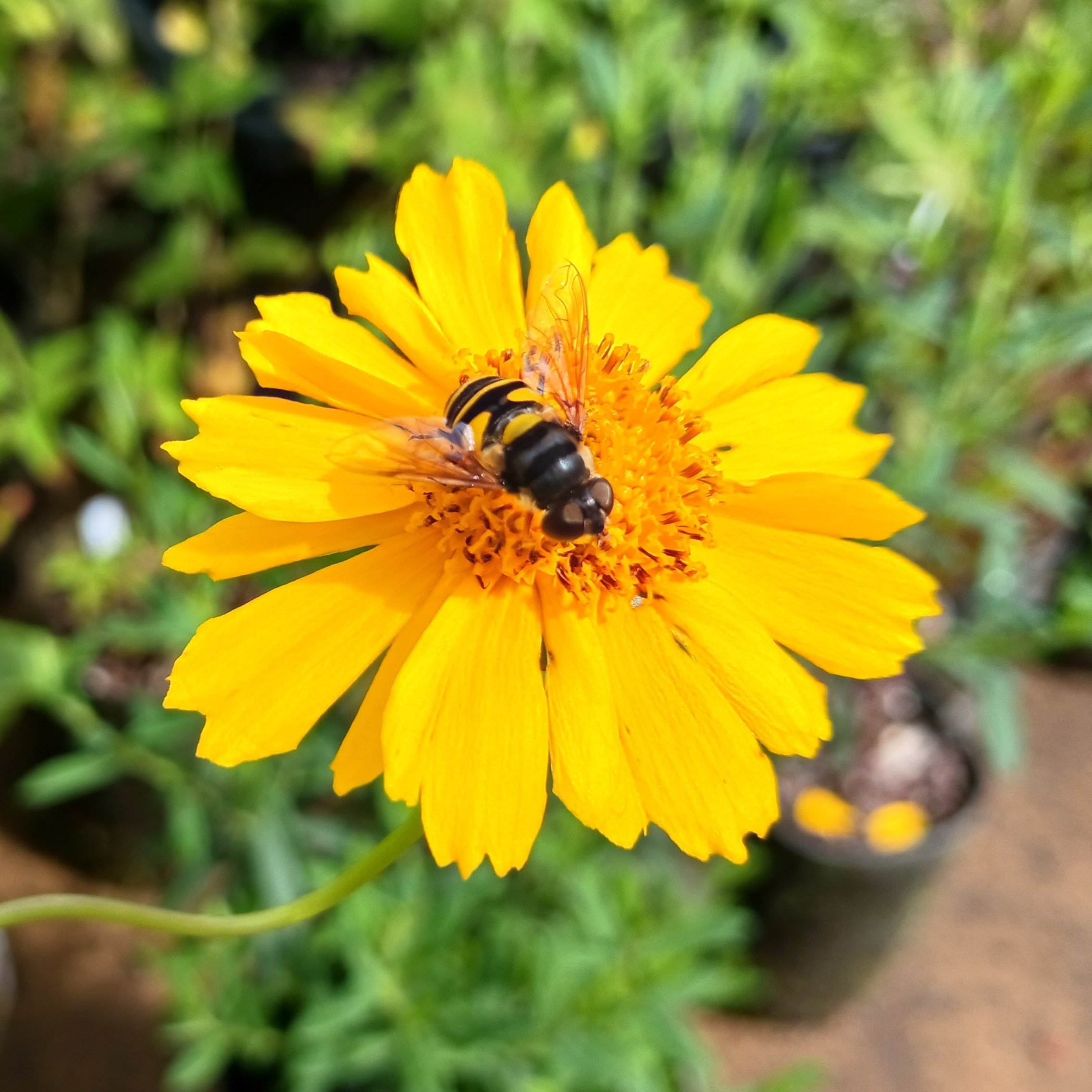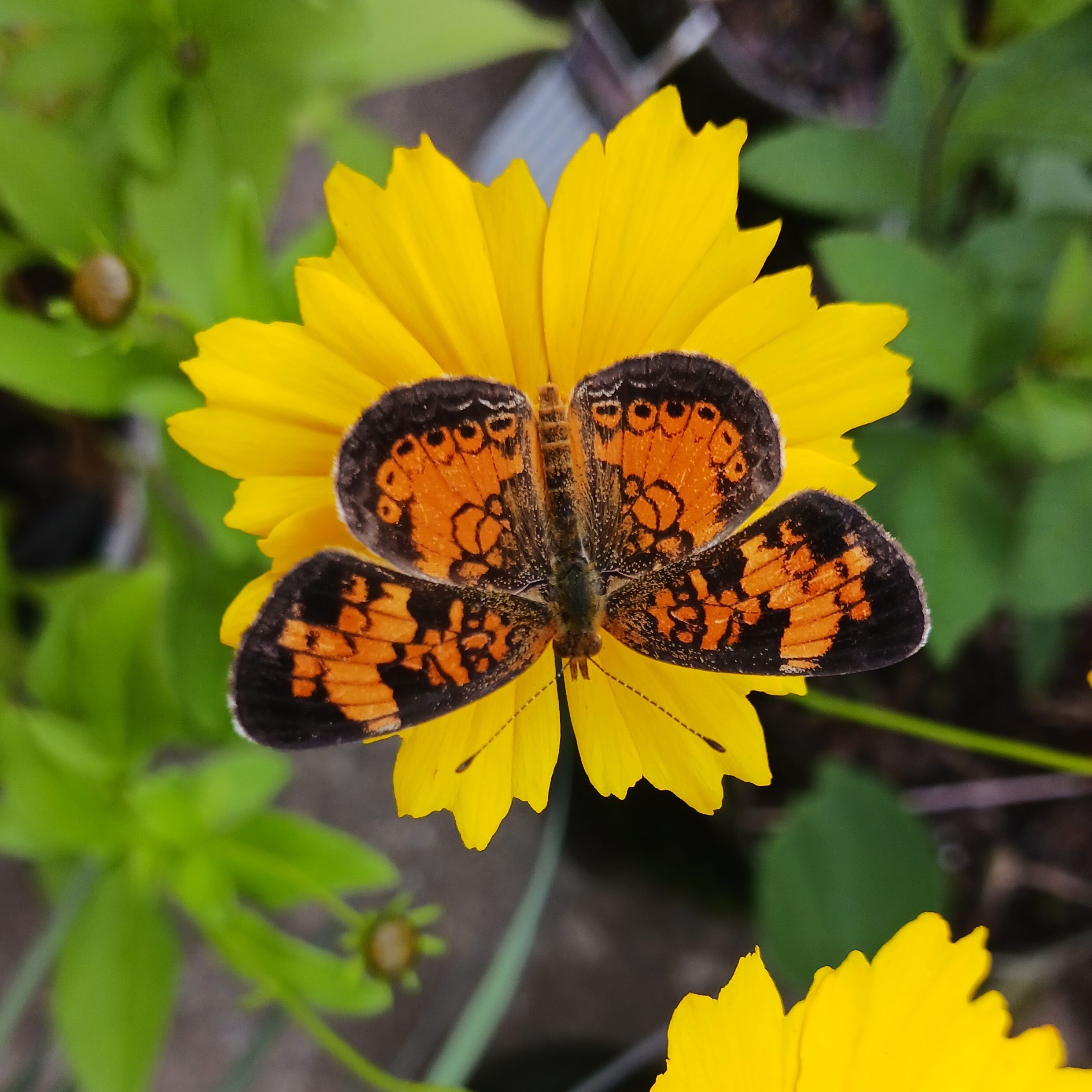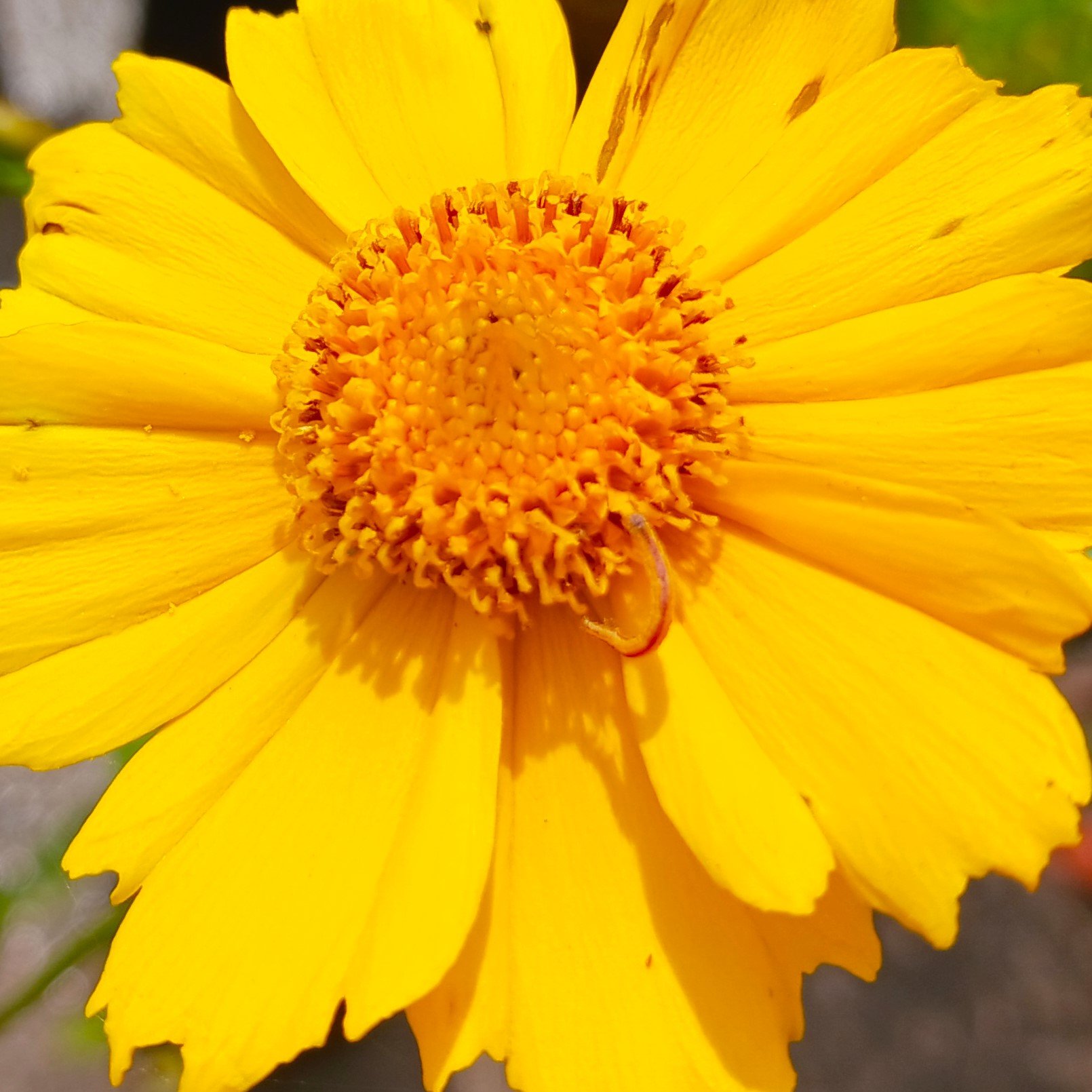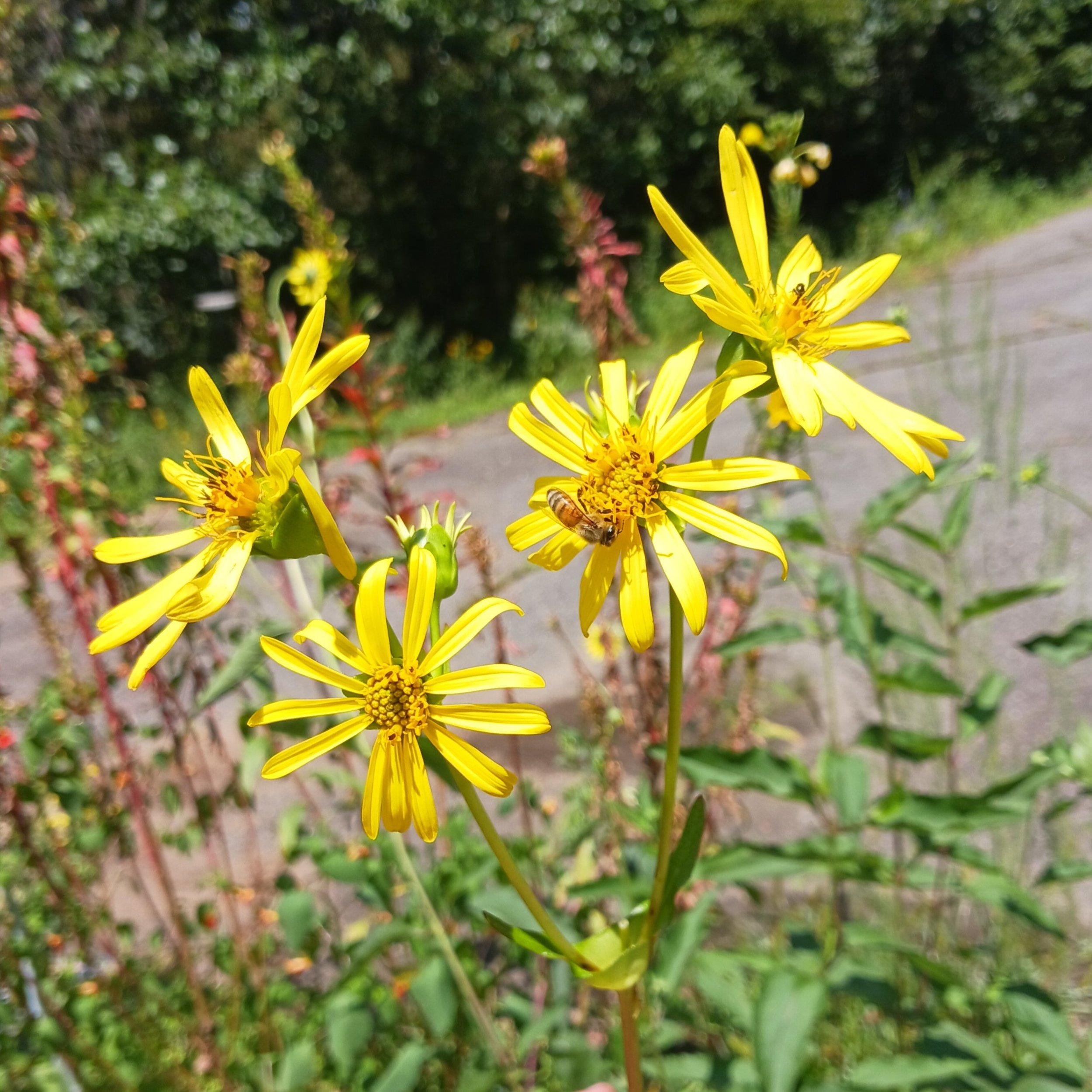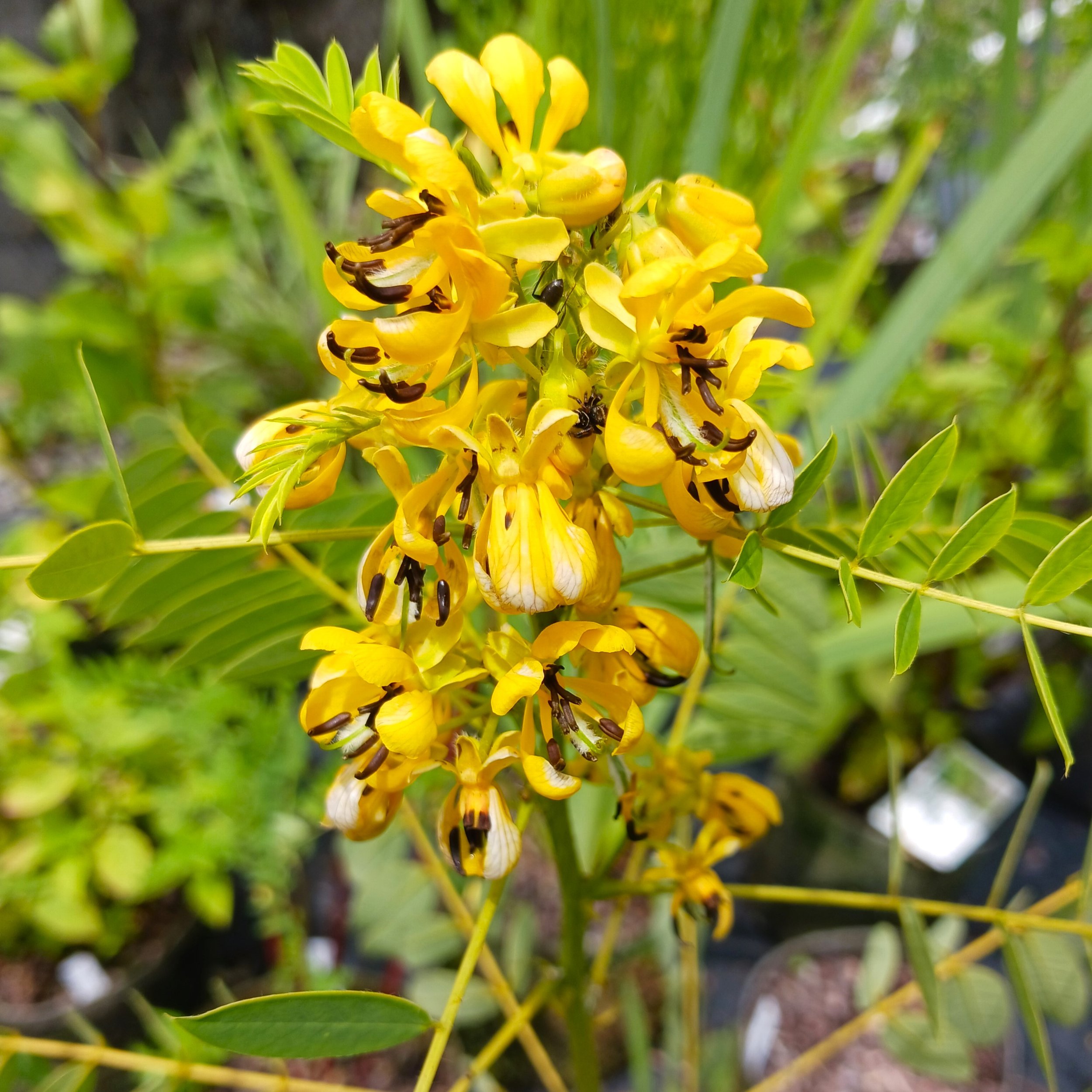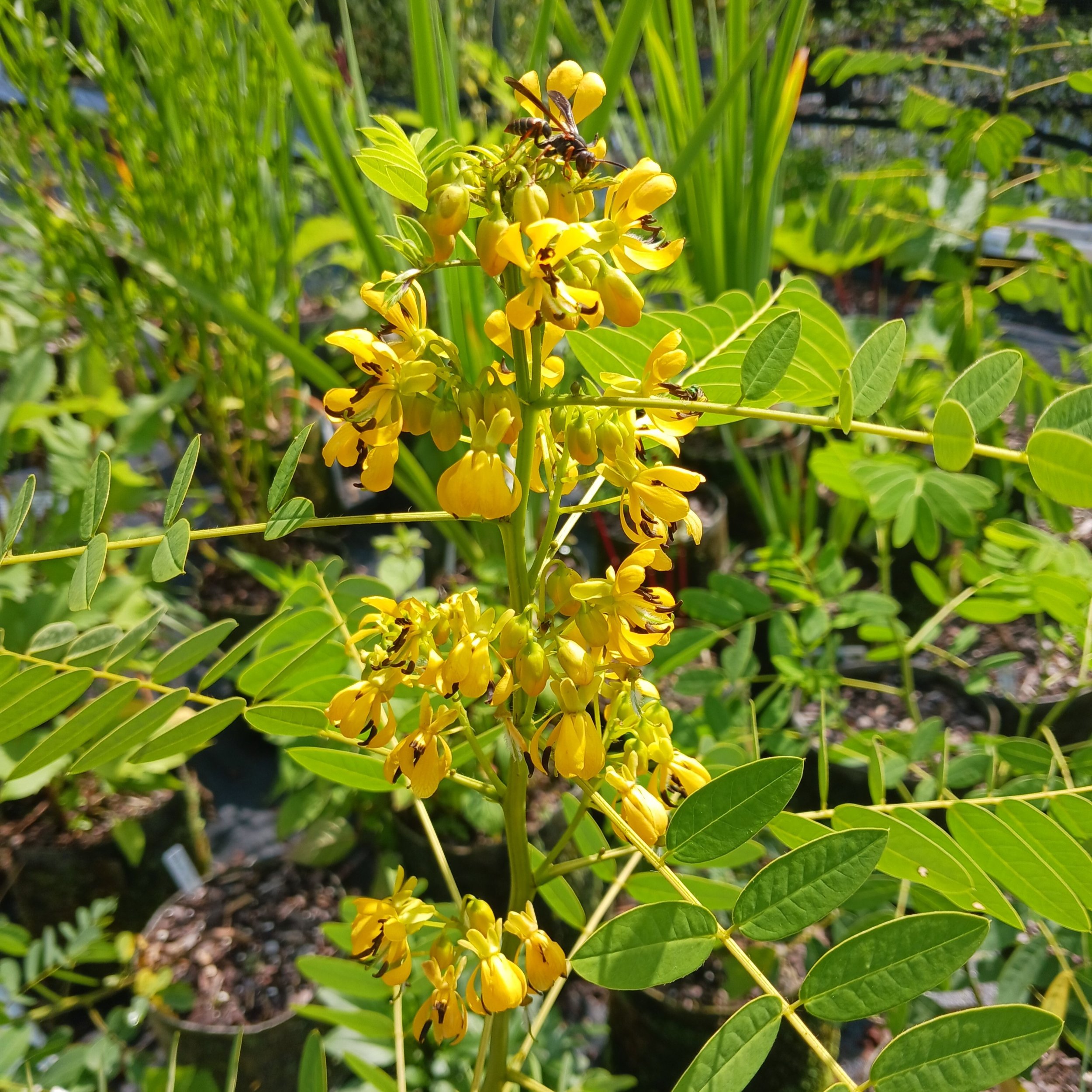Asclepias incarnata is one of the showier species of milkweeds, growing up to 4’ and forming a shrubby habit once established. Wild populations grow in sunny wetlands, but it will thrive in a typical garden with average rainfall, especially when established after 2-3 years. It pairs well with smaller wildflowers since it won’t spread by rhizomes like the more prolific Common Milkweed Asclepias syriaca, and its tall stalks rise over soils similar to Baptisia. Blooms start in June and can persist through summer, with the foliage dying back in fall, sometimes after a pop of red color. Asclepias incarnata is a great choice for rain gardens since it can tolerate standing water and pollutants, but its dense root system can resist hot, dry periods.
Milkweeds of the Asclepias genus are the only food source in our region for caterpillars of the iconic Monarch butterfly (Danaus plexippus). Some research suggests that Asclepias incarnata is one of the preferred milkweed species for Monarchs, and many native plant nurseries can personally attest to its popularity! A number of other species of butterflies and moths also use milkweeds as a larval food source, and milkweed flowers are attractive to a wide range of pollinators. In particular milkweeds attract beneficial insect predators such as syrphid flies and predatory wasps, so it can be a natural method of biological control. Over time, Asclepias incarnata plants can form their own micro-ecosystems with a variety of insects, spiders, birds, and other wildlife all interacting. Even herbivores like aphids can attract predators like lacewing larvae, which may in turn feed on pests in nearby patches of vegetables. A great choice for any bug lover!
Pollinators: bumblebees, long-horned bees, leafcutter and resin bees, halictid bees, honey bees, butterflies, hawkmoths, thick-headed flies, bee flies, syrphid flies, tachinid flies, wasps, soldier beetles, long-horned beetles
Host Plant for Butterflies/Moths: A dozen or more Lepidoptera species, including Tiger moths, Cecropia moths
Dependent Species: Monarch (Danaus plexippus), Unexpected Cycnia (Cycnia inopinatus), Milkweed Tussock Moth (Euchaetes egle), Queen (Danaus gilippus)
Wildlife Value: Hummingbirds, Songbirds, Thrushes, Wood Warblers
Deer Resistance: Excellent (deer may browse early shoots, however)
Native Region: Appalachian Mountains, Piedmont, Coastal Plain
Seed Origin: USA, nursery collected seed
USDA Zones: 3-9
States found in our region: AL, DE, GA, KY, MD, NC, PA, SC, TN, VA, WV
Other states found: AR, AZ, CO, CT, FL, ID, IL, IN, IA, KS, LA, ME, MA, MI, MN, MO, MT, NE, NV, NH, NJ, NM, NY, ND, OH, OK, RI, SD, TX, UT, VT, WI, WY




